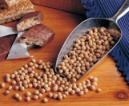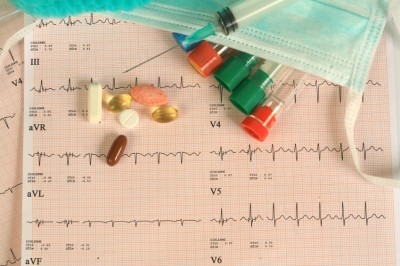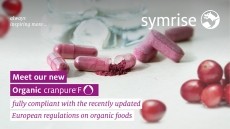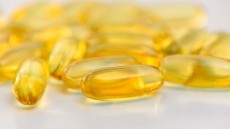Soy industry appeals to EC over EFSA cholesterol rejection

Failure to analyse all dossier data, a lack of communication and inconsistent application of scientific criteria were pointed as failings by Dr Janice Harland of HarlandHall in her letter to the EC’s Basil Mathioudakis.
Dr Harland is the consultant who worked with the three associations – the European Natural Soyfoods Manufacturers Association (ENSA), the European Vegetable Protein Federation (EUVEPRO) and the Soya Protein Association (SPA) - that submitted the article 14, disease risk factor reduction claim.
In critiquing the European Food Safety Authority Panel on Dietetic Products, Nutrition and Allergies (NDA) opinion, Dr Harland noted:
- “The evidence in the Application was not fully reviewed according to the principles of PASSCLAIM.
- The clinical studies submitted have been subject to very detailed scientific scrutiny, far in excess of the degree of scrutiny applied in other cholesterol-modification applications e.g. beta-glucans, pectins, oat and barley beta-glucan and plant stanols/sterols. We consider that there should be consistency in such evaluations of the data.
- We were not given the opportunity by use of the stop-the-clock procedure to provide more analyses regarding the comments of EFSA on the studies submitted."
“We trust that the Commission will take these concerns into account and will instruct EFSA accordingly,” Dr Harland wrote.
Meta vetted
She was particularly annoyed that the NDA had discounted and then cast aside a 24-study strong meta-analysis performed with NDA requirements in mind. “We were not allowed, despite the availability of the stop-the-clock procedure to EFSA, to demonstrate that any apparent weaknesses in specific studies did not materially affect the outcome and that the totality of the data demonstrate that isolated soy protein (ISP) reduces LDL-C in a statistically significant and biologically plausible manner.”
It is the third time the NDA has denied soy-cholesterol submissions, with it finding two article 14 submissions 'insufficient' rather than the more damning, ‘causality has not been proven’.
Micronutrient comparison
Dr Harland continued that six soy food studies rejected by the NDA over differing macronutrient compositions to the claimed ISP, had no grounds because, “in fact, in a number of these studies every attempt was made to ensure parity in macronutrient intake or dietary assessments were made that allowed any differences in macronutrient intake to be taken into account.”
She added that, “the totality of the evidence submitted has not been reviewed in a systematic manner and subjectivity has been introduced into the assessment with the result that the overall consistency and coherence of all the evidence has not been recognised.”
“We consider that we were not allowed to demonstrate that any apparent weaknesses in specific studies did not materially affect the outcome and that the totality of the data demonstrate that isolated soy protein reduces LDL-C in a statistically significantand biologically plausible manner.”
“Furthermore we assessed the risk of bias both at a study-level or an outcome-level assessment and found little evidence of bias. If only the methodologically sound studies are retained in the meta-analysis, the totality of this data indicates that ISP reduces LDL-C by about 0.16-0.25 mmol/L (which is a beneficial reduction in LDL-C), and this range still takes in the level of reduction reported in our original submission of about 0.2mmol/L.”
Extreme disappointment
ENSA’s scientific advisory committee also wrote to Mathioudakis stating it wanted to, “express its extreme disappointment at the NDA verdict.”
“The scientific committee wants to emphasize that the totality of the data clearly supports the contention that soy protein lowers cholesterol and that a health claim for soy protein was approved in the United Kingdom by the JHCI in 2002 based on the same criteria used in the current Article 14 application.”















